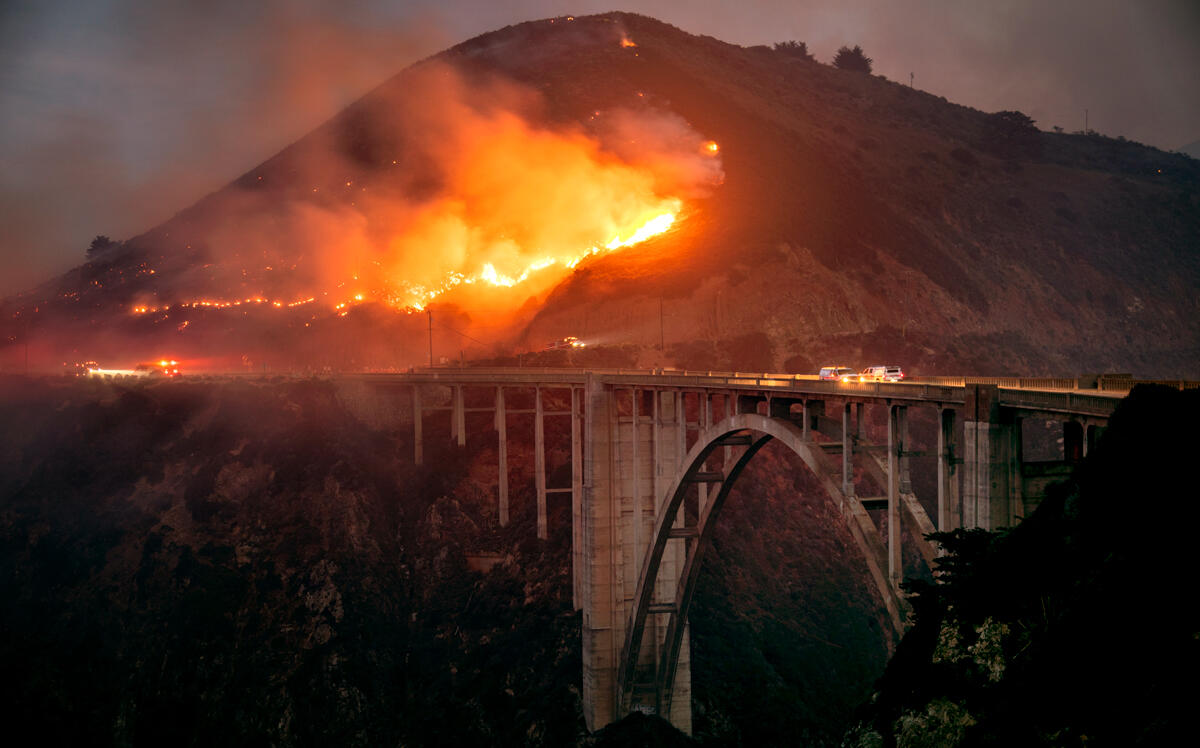What started as a brush fire on Friday night has grown into a 1,500-acre conflagration forcing the evacuation of more than 500 residents and the closure of a portion of historic State Highway One near Big Sur, California.
The New York Times is reporting that the blaze, confusingly named the “Colorado Fire,” quickly spread through the mountainous coastal region thanks to intense, gusty winds of up to 50 miles per hour blowing through what’s known as the Palo Colorado Canyon area — which has been mostly resistant to wildfires.
That changed Friday night, when the Monterey County Sheriff’s office demanded 500 people evacuate their homes south of Carmel-by-the-Sea, the town where actor and director Clint Eastwood famously served as mayor from 1986 to 1988.
George Nuñez, a captain with Cal Fire, the state’s fire agency, told the newspaper 120 firefighters were battling the blaze on Saturday, but the wind conditions and precipitous terrain made doing so extremely difficult.
The fire hit outside of California’s normal fire season, according to Reuters, which runs from May until October.
But more and more, wildfire season is being extended due to climate change, according to experts.
In 2021, the wildfire season in California began in January, amid ongoing drought conditions and low reservoir levels, according to Cal Fire.
Wildfires are taking a big toll on California’s real estate market, as insurance companies concerned bout exposure have cut back on offering policies to homeowners living in vulnerable areas.
On top of that, some residents are saying no to new developments in areas where it might be difficult to escape a fire.
A judge put the so-called Guenoc Valley Project, which would feature 1,400 homes in a wildfire hotspot 90 miles north of San Francisco, on hold after activists sued, citing their belief that in the event of a fire it would be difficult to get residents out via the small country roads that lead to the development site.
[New York Times] — Vince DiMiceli
